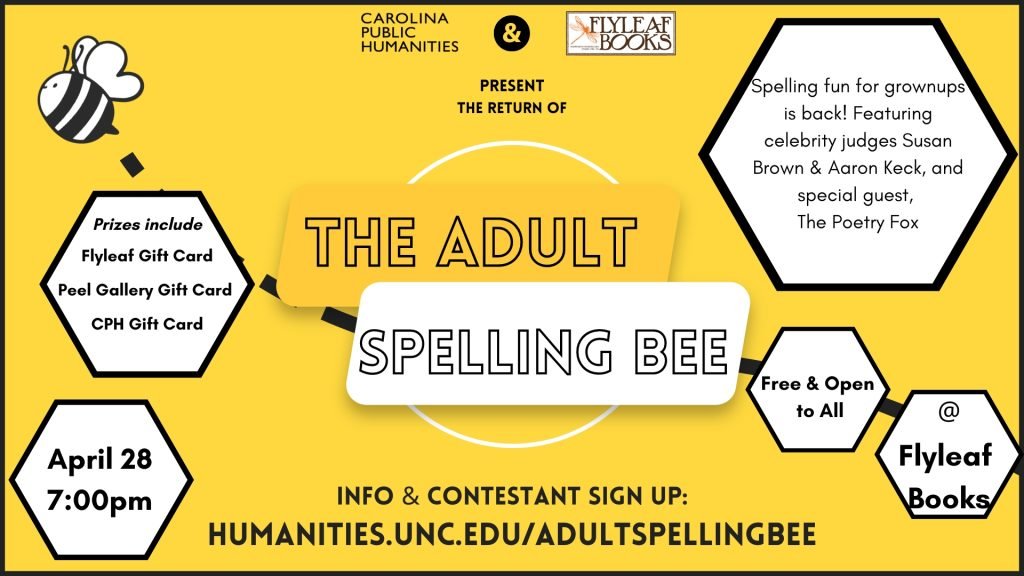Spelling bees have traditionally been associated with children and adolescents, yet they hold immense value for adults as well. Engaging in spelling bees not only enhances vocabulary but also sharpens cognitive skills, fosters confidence, and encourages a love for language. In this comprehensive guide, we will explore spelling bee words for adults, offer tips for mastering them, and discuss the benefits of participating in spelling competitions.
- Understanding the Value of Spelling Bee Words for Adults
- Spelling Bee Words for Adults: Categories and Examples
- Study Techniques for Mastering Spelling Bee Words for Adults
- The Role of Practice and Repetition
- The Importance of Mental Preparation
- Preparing for the Day of the Competition
- Read Also : mastering-spelling-bee-words-for-adults-a-comprehensive-guide
- Conclusion
Understanding the Value of Spelling Bee Words for Adults
Why Focus on Spelling Bee Words as an Adult?
- Vocabulary Expansion: As adults, we often encounter complex terminology in our professional and personal lives. Engaging with spelling bee words can enhance our vocabulary, enabling us to communicate more effectively.
- Cognitive Development: Participating in spelling challenges stimulates brain activity. It encourages critical thinking, problem-solving skills, and memory retention—all vital for personal and professional growth.
- Confidence Building: Successfully mastering challenging words boosts self-esteem. This newfound confidence can extend beyond spelling into other areas of life, including public speaking and written communication.
- Professional Advancement: Strong spelling and vocabulary skills are often essential in various careers. Whether you’re writing reports, delivering presentations, or crafting emails, clear communication is paramount.
- Social Engagement: Participating in spelling bees can be a social activity. Whether joining a local club or an online competition, spelling bees can foster connections and friendships based on shared interests.
The Unique Aspects of Adult Spelling Bees

Adult spelling bees differ from traditional children’s competitions in several ways:
- Word Complexity: The vocabulary used in adult spelling bees is generally more advanced, incorporating technical terms, obscure words, and jargon relevant to various fields.
- Competitive Nature: Adult spelling bees may adopt a more serious tone, with participants often aiming for mastery rather than simply participating for fun.
- Diverse Backgrounds: Participants may come from various professional and educational backgrounds, leading to a richer and more diverse competition.
Spelling Bee Words for Adults: Categories and Examples
To help adults prepare for spelling bee competitions, we can categorize the words into various groups. Here are some common categories, along with examples of spelling bee words for adults:
1. Commonly Misspelled Words
Many adults struggle with commonly misspelled words, often due to confusion over phonetics or similar-sounding words. Examples include:
- Accommodate: To provide what is needed.
- Conscientious: Diligent and careful.
- Embarrass: To cause someone to feel self-conscious or ashamed.
- Minuscule: Extremely small.
- Precede: To come before something in time or order.
2. Technical Terms
Technical language varies across professions, and mastering these terms can be beneficial in specific industries. Examples include:
- Algorithm: A step-by-step procedure for calculations.
- Photosynthesis: The process by which green plants use sunlight to synthesize food.
- Thermodynamics: The branch of physics concerned with heat and temperature.
- Neuroplasticity: The brain’s ability to reorganize itself by forming new neural connections.
- Quantum: The smallest amount of a physical quantity.
3. Cultural and Historical Vocabulary
Understanding cultural references and historical terms can enrich conversations and discussions. Examples include:
- Renaissance: A period of renewed interest in art and learning in Europe.
- Egalitarian: Believing in the principle of equal rights for all people.
- Machiavellian: Characterized by cunning or ruthless behavior.
- Ubiquitous: Present, appearing, or found everywhere.
- Zeitgeist: The defining spirit or mood of a particular period.
4. Literary and Poetic Terms
For those with a passion for literature, mastering literary vocabulary is essential. Examples include:
- Metaphor: A figure of speech that refers to one thing by mentioning another.
- Alliteration: The occurrence of the same letter or sound at the beginning of adjacent or closely connected words.
- Onomatopoeia: A word that imitates the natural sounds of a thing.
- Oxymoron: A figure of speech in which contradictory terms appear in conjunction.
- Personification: The attribution of human traits to non-human entities.
5. Foreign Language Words
Many English words have roots in foreign languages. Understanding these can enhance spelling skills. Examples include:
- Cliché: A phrase or opinion that is overused.
- Fiancé: A man engaged to be married.
- Déjà vu: The feeling that one has lived through the present situation before.
- Ballet: A highly technical form of dance.
- Tsunami: A long high sea wave caused by an earthquake.
Study Techniques for Mastering Spelling Bee Words for Adults
To excel in adult spelling bees, it’s essential to adopt effective study techniques. Here are some strategies that can help:
1. Create a Personalized Word List
Start by compiling a list of spelling bee words that challenge you. Include words from the categories mentioned above, as well as any words you encounter in your professional field.
2. Utilize Flashcards
Flashcards are an effective tool for memorization. Write the word on one side and its definition or a sentence using the word on the other. This dual approach enhances both spelling and comprehension.
3. Engage in Active Learning
Instead of passive reading, engage with the words actively. Use them in conversations, write sentences, or even compose short stories that incorporate your spelling bee words.
4. Practice with Word Games
Word games like Scrabble, Boggle, and online spelling platforms can make learning enjoyable. These games encourage critical thinking and familiarity with word structures.
5. Leverage Technology
Numerous apps and websites focus on spelling and vocabulary enhancement. Tools like Quizlet, Merriam-Webster’s Dictionary app, and spelling game websites can offer interactive learning experiences.
6. Form Study Groups
Joining a study group can provide motivation and support. Discussing words, sharing techniques, and quizzing one another can make the learning process more enjoyable and effective.
7. Engage in Mock Competitions
Participate in mock spelling bees to simulate the competition experience. This practice can help you manage nerves and gain confidence for the actual event.
The Role of Practice and Repetition
Repetition is a key factor in mastering spelling bee words for adults. Here are some effective ways to incorporate practice into your study routine:
1. Daily Word Drills
Set aside time each day to practice spelling a set number of words. Focus on both spelling and understanding the meanings of the words.
2. Write Essays or Articles
Incorporate your spelling bee words into essays, blog posts, or articles. This practice not only reinforces spelling but also enhances writing skills.
3. Utilize Online Resources
Explore websites and online communities dedicated to spelling bees. Many offer quizzes, practice tests, and forums where you can connect with other spelling enthusiasts.
4. Record Yourself
Recording yourself spelling the words aloud can be a helpful practice tool. Listening to your pronunciation and spelling can reinforce your learning.
The Importance of Mental Preparation
Mental preparation is as crucial as studying the words themselves. Here are some strategies to keep your mind sharp:
1. Practice Mindfulness
Mindfulness techniques can help you manage anxiety and stay focused during competitions. Consider meditation, deep-breathing exercises, or visualization techniques.
2. Stay Positive
Maintain a positive mindset as you prepare for spelling bees. Visualize your success and remind yourself that everyone makes mistakes—what matters is learning from them.
3. Stay Physically Active
Regular exercise can improve cognitive function and reduce stress. Incorporate physical activity into your routine to stay energized and focused.
4. Nutrition Matters
A balanced diet plays a significant role in cognitive performance. Consume brain-boosting foods like nuts, fish, fruits, and vegetables to support your mental clarity.
Preparing for the Day of the Competition
As the competition day approaches, effective preparation is essential. Here are some tips to ensure you’re ready:
1. Plan Your Logistics
Know the location and time of the spelling bee well in advance. Arrive early to familiarize yourself with the environment and reduce stress.
2. Dress Comfortably
Choose comfortable clothing that allows you to focus on the task at hand. Avoid clothing that may cause distractions or discomfort.
3. Practice Relaxation Techniques
On the day of the competition, practice relaxation techniques to manage nerves. Deep breathing or visualization can help you stay calm and focused.
4. Stay Hydrated and Nourished
Drink plenty of water and eat a healthy meal before the competition. Avoid heavy or greasy foods that may make you sluggish.
Read Also : mastering-spelling-bee-words-for-adults-a-comprehensive-guide
Conclusion
Engaging with spelling bee words for adults is a rewarding endeavor that offers numerous benefits. From expanding vocabulary to boosting confidence, mastering these words can enhance communication skills and cognitive function.
By focusing on effective study techniques, incorporating practice and repetition, and preparing mentally for competitions, adults can excel in spelling bees and enjoy the many rewards they bring.
Whether you’re a seasoned speller or just starting your journey, participating in spelling bees can lead to lifelong learning and a deeper appreciation for the intricacies of language. So gather your spelling bee words, practice diligently, and embrace the challenge ahead. You may find that spelling bees are not just a test of knowledge, but a gateway to a world of language and connection.





